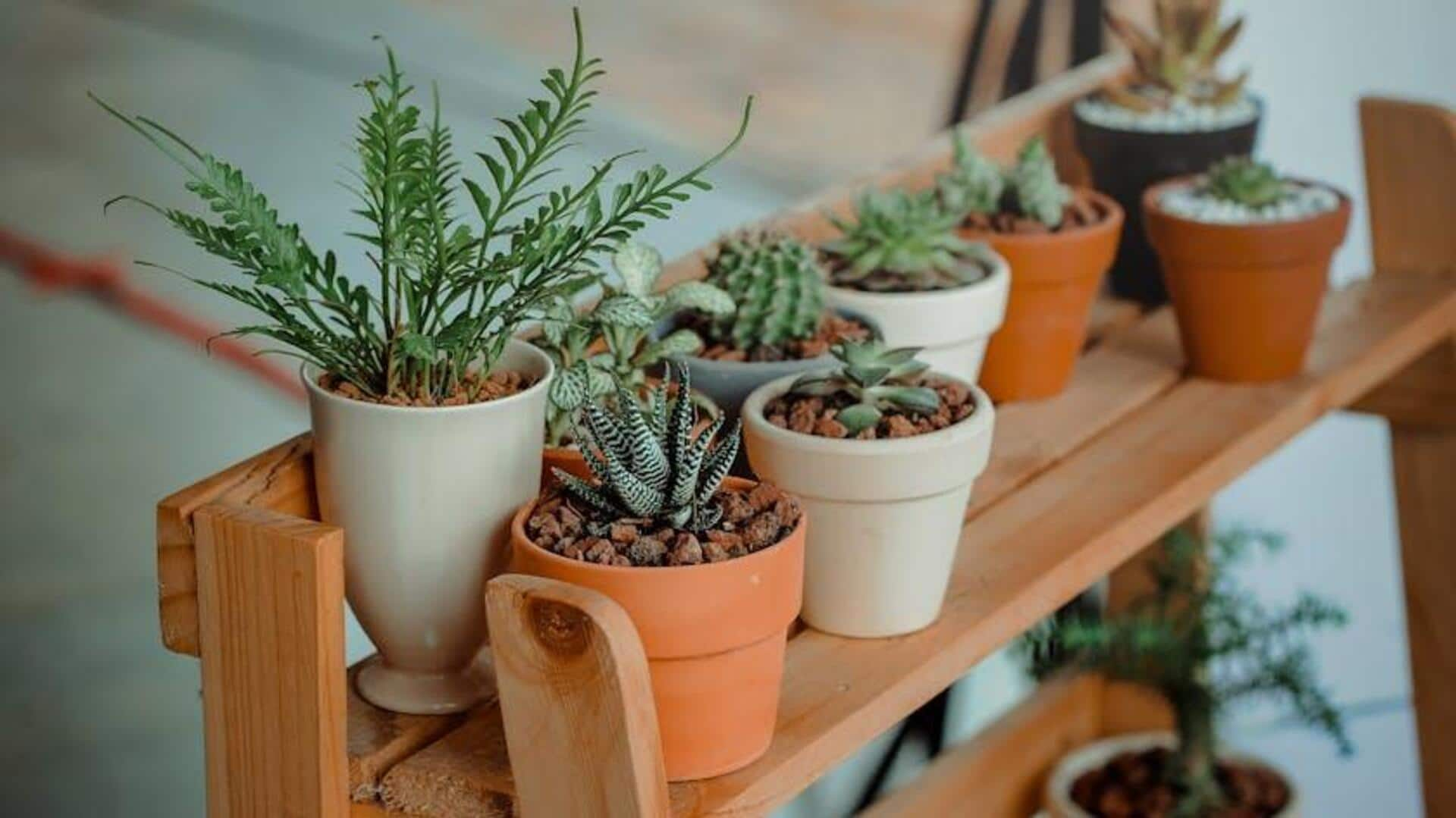
Revive your indoor plants with these tips
What's the story
Indoor plants sometimes droop because of several reasons, including inadequate watering, poor lighting, or nutrient deficiencies. Reviving them calls for understanding the underlying issues and addressing them effectively. Here, we explore practical methods to get your indoor plants back on their feet. By following these straightforward tips, you can ensure that your plants thrive and continue beautifying your living space.
Watering tips
Adjust watering routine
One common reason for drooping indoor plants is improper watering. Overwatering or underwatering can both lead to wilting leaves. To address this, check the soil moisture by inserting a finger about an inch deep into the soil. If it feels dry, it's time to water; if it's still moist, wait a few days before checking again. Ensure that pots have drainage holes to prevent waterlogging.
Light adjustment
Optimize light conditions
Lack of light can make indoor plants droop as they compete for energy. Evaluate the light needs of each plant species and reposition them accordingly. Move sun-loving plants closer to windows where they get plenty of sunlight, while keeping shade-loving varieties in dimmer regions. If natural light is scarce, consider using artificial grow lights.
Pest control
Check for pests and diseases
Pests and diseases can weaken indoor plants, making them droop over time. Regularly inspect leaves and stems for signs of infestation or disease symptoms such as spots or discoloration. Use natural remedies like neem oil or insecticidal soap for pest control, and remove affected parts promptly to prevent spread.
Fertilizer use
Provide nutrients with fertilizers
Nutrient deficiencies can also cause drooping in indoor plants since they don't have the necessary elements for growth. Use a balanced liquid fertilizer every four weeks during the growing season as per package instructions, but don't over-fertilize it, which could damage roots instead of aiding them to recover from stressors like droughts due to negligent caretakers who forget regular maintenance routines altogether.